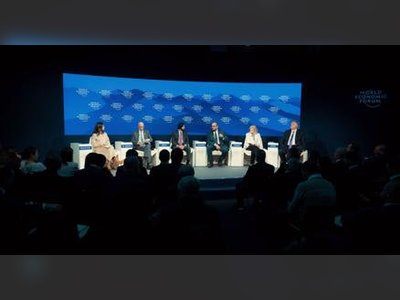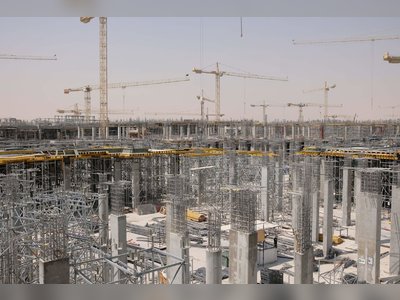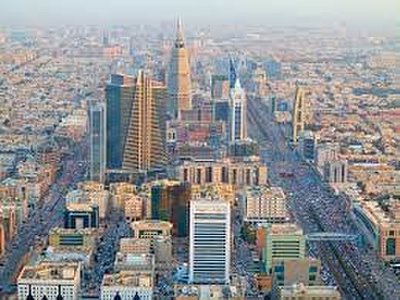
Israeli Organization Reveals New Details About 'Killing Zone' Near Gaza
A new report describes methods used by Israeli forces to create an extensive buffer zone by destroying agricultural land and evacuating entire neighborhoods in Gaza.
An Israeli human rights organization released a report detailing accounts from soldiers regarding the harsh tactics employed by Israeli forces to establish what they describe as a 'killing zone' around the Gaza Strip.
The report indicates systematic destruction of buildings and agricultural fields to create a vast buffer zone within the territory during the initial months of the ongoing conflict.
Soldiers expressed that many of these methods lacked clear justification, with legal experts suggesting that such tactics may violate international law.
Published on Monday, the report by the Israeli organization Breaking the Silence is based on testimonies from soldiers who served in Gaza and participated in the creation of the buffer zone.
By December 2024, the depth of this zone expanded to between 800 and 1500 meters into Gaza, with further extensions planned by Israeli forces.
According to the report, there is a systematic effort by the Israeli military to destroy neighborhoods, industrial areas, and agricultural lands along the border fence, deemed 'vital to the fabric of life in Gaza'.
The stated objective is to expand and intensify the buffer zone within Gaza itself.
These testimonies come as the Israeli military escalates its land operations in Gaza, with plans to seize large areas to enhance Israeli security zones, as stated by Israeli Defense Minister Yoav Gallant last week.
The Israeli military has issued additional evacuation orders, and Prime Minister Benjamin Netanyahu announced the establishment of a new military corridor near Rafah in southern Gaza, asserting, 'We are cutting through the territory and increasing the pressure step by step.'
Recent reports indicate the Israeli military has already expanded its operational footprint, gaining control over approximately 30% of Gaza's land.
Joael Carmel, a former Israeli soldier and director of advocacy at Breaking the Silence, commented that the tactics documented in the report could indicate a robust strategy employed by the military to seize more land.
The report notes that the demolition of infrastructure and buildings in the buffer zone sometimes occurred after areas had been secured, even when no direct threat to forces was present.
The report includes dozens of testimonies from soldiers deployed in the buffer zone between October 2023 and August 2024, including insights from an officer present in the operation command during planning.
The report details that engineering units were deployed to northern and eastern Gaza and were ordered to demolish over 3,500 buildings using explosives or heavy machinery, as reported by soldiers and corroborated in interviews with a small group of journalists last week.
Soldiers detailed the destruction of orchards and crop fields used by Palestinians to grow wheat, barley, olives, almonds, strawberries, and citrus fruits.
Starting in late October 2023, a reservist soldier described receiving orders for bombing remaining homes in northern Gaza.
The daily routine involved receiving assignments for multiple houses each day, with explosives, including anti-tank mines, provided for demolition.
Soldiers would retreat to a safe distance before detonating several homes simultaneously.
Reports from last week noted a scene of devastation along the eastern edge of Gaza, with artillery fire sporadically breaking the silence.
Remains of industrial areas now lie in ruins behind a large earthen barrier several hundred meters from the border fence.
One reserve soldier reported witnessing the systematic destruction of buildings, noting that the rationale conveyed to them was that proximity to the border posed a security threat, as Hamas fighters could utilize the structures for cover or to launch attacks.
This rationale raised concerns among some soldiers regarding proportionality and justification of destruction.
Legal experts have criticized the reported destruction, indicating that international humanitarian law prohibits the destruction of civilian properties by an occupying state unless essential for military operations.
The expert emphasized that the agricultural land, viewed as crucial for civilian sustenance, receives additional protection under international law.
Soldiers recounted a lack of clear engagement rules in circumstances where they spotted individuals in the vicinity, with many receiving instructions to open fire on anyone entering the area.
The report comments on the unclear demarcation of the expanded buffer zone, with quoted soldiers noting that it was not clear to Palestinian civilians where this line was located.
The testimonies trace back to soldiers serving in Gaza from late 2023 to early 2024, excluding more recent expansions of territories controlled by the military.
Soldiers reported utilizing heavy machinery and explosives, destroying approximately 3,500 buildings alongside agricultural and industrial areas potentially vital for post-war reconstruction.
A separate report indicated that around 35% of Gaza's agricultural land had been destroyed, primarily on the periphery of the territory.
A reserve soldier remarked that their actions resulted in indiscriminate destruction of properties.
Live accounts describe scenes reminiscent of Hiroshima in their destruction.
Breaking the Silence, founded by a group of former Israeli soldiers to raise awareness of military experiences in the Occupied West Bank and Gaza, has recorded testimonies while concealing soldiers' identities.
The report features accounts of soldiers who felt a profound shock upon witnessing the initial destruction in northern Gaza when their unit was first deployed.
The ongoing conflict has reportedly resulted in over 50,000 Palestinian deaths, according to health authority data in Gaza which does not distinguish between civilians and combatants.
The Israeli military estimates around 20,000 militants have been killed since the onset of hostilities.
Israeli operations have led to vast destruction in Gaza, resulting in the displacement of hundreds of thousands who now reside in makeshift camps or damaged properties.
The Israeli Ministry of Foreign Affairs issued a detailed statement emphasizing the military's commitment to adhering to international law and minimizing civilian harm, encouraging temporary evacuations where intense military activities occurred.
Destruction of agricultural lands is expected to have long-term ramifications for governance and self-reliance in Gaza, with estimates highlighting the erasure of vital resources for Palestinian livelihoods.
The report indicates systematic destruction of buildings and agricultural fields to create a vast buffer zone within the territory during the initial months of the ongoing conflict.
Soldiers expressed that many of these methods lacked clear justification, with legal experts suggesting that such tactics may violate international law.
Published on Monday, the report by the Israeli organization Breaking the Silence is based on testimonies from soldiers who served in Gaza and participated in the creation of the buffer zone.
By December 2024, the depth of this zone expanded to between 800 and 1500 meters into Gaza, with further extensions planned by Israeli forces.
According to the report, there is a systematic effort by the Israeli military to destroy neighborhoods, industrial areas, and agricultural lands along the border fence, deemed 'vital to the fabric of life in Gaza'.
The stated objective is to expand and intensify the buffer zone within Gaza itself.
These testimonies come as the Israeli military escalates its land operations in Gaza, with plans to seize large areas to enhance Israeli security zones, as stated by Israeli Defense Minister Yoav Gallant last week.
The Israeli military has issued additional evacuation orders, and Prime Minister Benjamin Netanyahu announced the establishment of a new military corridor near Rafah in southern Gaza, asserting, 'We are cutting through the territory and increasing the pressure step by step.'
Recent reports indicate the Israeli military has already expanded its operational footprint, gaining control over approximately 30% of Gaza's land.
Joael Carmel, a former Israeli soldier and director of advocacy at Breaking the Silence, commented that the tactics documented in the report could indicate a robust strategy employed by the military to seize more land.
The report notes that the demolition of infrastructure and buildings in the buffer zone sometimes occurred after areas had been secured, even when no direct threat to forces was present.
The report includes dozens of testimonies from soldiers deployed in the buffer zone between October 2023 and August 2024, including insights from an officer present in the operation command during planning.
The report details that engineering units were deployed to northern and eastern Gaza and were ordered to demolish over 3,500 buildings using explosives or heavy machinery, as reported by soldiers and corroborated in interviews with a small group of journalists last week.
Soldiers detailed the destruction of orchards and crop fields used by Palestinians to grow wheat, barley, olives, almonds, strawberries, and citrus fruits.
Starting in late October 2023, a reservist soldier described receiving orders for bombing remaining homes in northern Gaza.
The daily routine involved receiving assignments for multiple houses each day, with explosives, including anti-tank mines, provided for demolition.
Soldiers would retreat to a safe distance before detonating several homes simultaneously.
Reports from last week noted a scene of devastation along the eastern edge of Gaza, with artillery fire sporadically breaking the silence.
Remains of industrial areas now lie in ruins behind a large earthen barrier several hundred meters from the border fence.
One reserve soldier reported witnessing the systematic destruction of buildings, noting that the rationale conveyed to them was that proximity to the border posed a security threat, as Hamas fighters could utilize the structures for cover or to launch attacks.
This rationale raised concerns among some soldiers regarding proportionality and justification of destruction.
Legal experts have criticized the reported destruction, indicating that international humanitarian law prohibits the destruction of civilian properties by an occupying state unless essential for military operations.
The expert emphasized that the agricultural land, viewed as crucial for civilian sustenance, receives additional protection under international law.
Soldiers recounted a lack of clear engagement rules in circumstances where they spotted individuals in the vicinity, with many receiving instructions to open fire on anyone entering the area.
The report comments on the unclear demarcation of the expanded buffer zone, with quoted soldiers noting that it was not clear to Palestinian civilians where this line was located.
The testimonies trace back to soldiers serving in Gaza from late 2023 to early 2024, excluding more recent expansions of territories controlled by the military.
Soldiers reported utilizing heavy machinery and explosives, destroying approximately 3,500 buildings alongside agricultural and industrial areas potentially vital for post-war reconstruction.
A separate report indicated that around 35% of Gaza's agricultural land had been destroyed, primarily on the periphery of the territory.
A reserve soldier remarked that their actions resulted in indiscriminate destruction of properties.
Live accounts describe scenes reminiscent of Hiroshima in their destruction.
Breaking the Silence, founded by a group of former Israeli soldiers to raise awareness of military experiences in the Occupied West Bank and Gaza, has recorded testimonies while concealing soldiers' identities.
The report features accounts of soldiers who felt a profound shock upon witnessing the initial destruction in northern Gaza when their unit was first deployed.
The ongoing conflict has reportedly resulted in over 50,000 Palestinian deaths, according to health authority data in Gaza which does not distinguish between civilians and combatants.
The Israeli military estimates around 20,000 militants have been killed since the onset of hostilities.
Israeli operations have led to vast destruction in Gaza, resulting in the displacement of hundreds of thousands who now reside in makeshift camps or damaged properties.
The Israeli Ministry of Foreign Affairs issued a detailed statement emphasizing the military's commitment to adhering to international law and minimizing civilian harm, encouraging temporary evacuations where intense military activities occurred.
Destruction of agricultural lands is expected to have long-term ramifications for governance and self-reliance in Gaza, with estimates highlighting the erasure of vital resources for Palestinian livelihoods.











